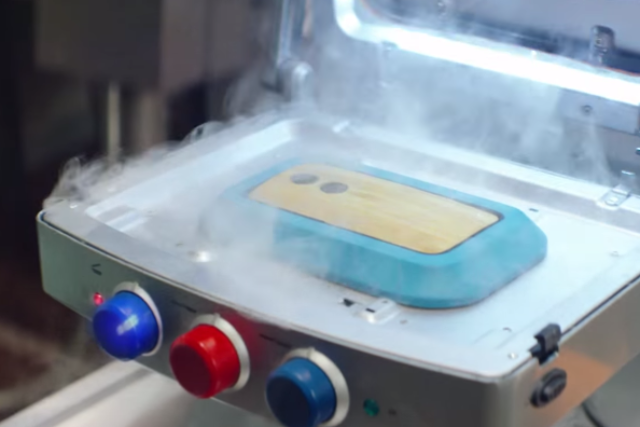
In a bullish pitch for the smartphone company, Frost insisted Motorola’s new parent, Lenovo, "loves the brand" and will allow the firm to continue its current line of smartphones and expansion into wearables.
Speaking to Marketing, Frost claimed Motorola had successfully shed its baggage as an historical innovator that had lost its way.
He said: "The legacy challenge, surprisingly, hasn’t been a challenge whatsoever. An excellent example is in India, where we have gone in great guns with 360-degree marketing. The amount of brand love is phenomenal."
"The challenge is staying true to what we’re now doing – we’re fresh, we’re agile and the products seem to be appealing. We need to keep doing more of the same as we grow."
Bought and sold by Google
Motorola Mobility has come a long way since its "Hello Moto" days, navigating a difficult couple of years under several different owners.
After its demerger from Motorola, Motorola Mobility was acquired by Google for an astonishing $12.5bn. That deal only closed in 2012, yet in January this year Google said it would sell the company again to Chinese electronics company Lenovo for just $2.5bn.
Under Google, it was thought a revitalised Motorola could become a major mobile brand again. In the first three months of 2008, Motorola held more than 10% of the global smartphone market, . By the beginning of 2011 that had shrunk to 2.4%.
The company remains unprofitable, losing $1bn a year, according to Bloomberg, though new owners Lenovo hope to get the company back in the black within the next six quarters.
Comeback challenge
With the wider business changes as a backdrop, Frost faces a serious challenge marketing Motorola smartphones, at least in Europe.
Up until its acquisition by Lenovo, Motorola did not smartphone brands by market share, according to IDC. But the acquisition means Motorola and Lenovo combined now make the third-largest smartphone company globally.
And with a more streamlined set of devices produced under Google, Motorola is making a comeback, even in saturated markets such as the UK.
According to March figures from Kantar, Motorola has seen comparatively impressive growth in the UK off the back of the Moto G, a high-end smartphone with a low price-tag.
From almost zero presence in the UK, Motorola now holds 6% of the UK smartphone market. According to Frost, Brazil and the US remain the company’s biggest markets.
Frost's pitch comes at a point when rivals have begun stepping up their marketing activity ahead of Christmas.
Last month, Microsoft launched the campaign to promote its Lumia phones with a high-octane cycling stunt. Samsung its first Christmas TV campaign in the UK. Asked by Marketing what Motorola phones represent, Frost said the brand stood for "inclusion".
He said: "When we talk about feelings, it’s inclusion and accessibility. Motorola is for everyone, we don’t stand on ceremony. We are a brand for the people."
Motorola last week launched its in the UK, which shows off the customisability of its high-end Moto X smartphone through the Moto Maker site.



.jpg)
.jpeg)
